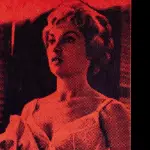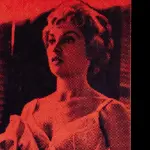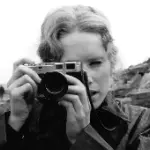"No Country for Old Men" is a 2007 neo-Western thriller film directed by Joel and Ethan Coen, adapted from the Cormac McCarthy novel of the same name. The film is set in West Texas in 1980. It follows the story of a man named Llewelyn Moss who stumbles upon a drug deal gone wrong and takes off with two million dollars in cash, only to be pursued relentlessly by a psychopathic hitman named Anton Chigurh.

The movie opens with Sheriff Bell's monologue: The boy had killed his 14-year-old girlfriend. The papers described it as a crime of passion, "but he told me there weren't nothin' passionate about it. Said he'd been fixin' to kill someone for as long as he could remember. Said if I let him out of there, he'd kill somebody again. Said he was goin' to hell. Reckoned he'd be there in about 15 minutes." I don't know what to make of that. I sure don't. The crime you see now, it's hard to even take its measure. It's not that I'm afraid of it. I always knew you had to be willing to die to even do this job. But, I don't want to push my chips forward and go out and meet something I don't understand. A man would have to put his soul at hazard. He'd have to say, "O.K., I'll be part of this world."
The introductory monologue establishes the central theme of the movie, which centers on a merciless, incomprehensible murderer, reflecting on the essence of malevolence and the impact of chance on our existence. The whole film centers on the concept of fate and life’s unpredictability.
Sheriff Bell decides to quit his job at the end of the film because he believes that he is no longer able to keep up with the brutality and ruthlessness of criminals like Chigurh. The changing nature of crime and violence in the modern world has gone beyond his understanding.

As Ellis (an old Sheriff) says near the end of the film:
“What you got ain't nothin' new. This country's hard on people. You can't stop what's coming. It ain't all waiting on you. That's vanity.”
As time passes, people inevitably get older. The aging process is a natural phenomenon and something predictable in life. With age comes more life experience, leading some individuals to believe that they possess the wisdom and insight to predict and comprehend everything.
However, individuals can be completely mistaken. Just as Sheriff Bell says:
“ I always figured when I got older, God would sort of come into my life somehow. And he didn't. I don't blame him. If I was him I would have the same opinion of me that he does.”
The film's title, "No Country for Old Men," represents not only the physical limitations and societal challenges that come with aging but also the realization that the wisdom people expect to acquire to understand everything as they grow older, may not be attainable. As individuals approach the end of their lives, they may be both physically frail and emotionally bewildered, rendering them unable to find a place in this world - making it truly "no country for old men."

The character of Anton Chigurh in the film serves as not just a symbol of death but also as a representation of the unpredictability of fate. Each person who crosses paths with Chigurh in the film embodies the established rules and order of life, reflecting the common experiential models that most people have accumulated over time. Conversely, Chigurh himself represents the unpredictable - encompassing factors such as irregularity, illogicality, disorder, abnormality, and sudden, random changes. In essence, what might be considered the expected or logical outcome according to experience does not apply to Anton Chigurh. The concept of "should or supposed to happen" is entirely absent in his world.
In the opening scenes of the film, the police officer who captures Anton Chigurh could never have foreseen that his prisoner - already restrained in handcuffs - would still be capable of killing him, demonstrating life's unpredictability.
Later on, while driving a police car, Anton Chigurh haphazardly intercepts a car on the road and murders the driver using an air tank. For the driver, both the fact of his untimely death and the manner in which it occurred represent life's unpredictability.

Merely inquiring about the weather in Chigurh's hometown puts the grocery store owner in grave danger. The seemingly innocent question sets off a chain of events, as Chigurh forces the store owner to participate in a coin toss game. Fortunately, the store owner guesses correctly and survives the encounter. Had he guessed wrong, he would have been shot, left to ponder how a harmless question could lead to his demise - an outcome that defies all logic and contradicts decades of life experience.

Carson Wells, a self-assured hitman who boasts about his ability to handle Anton Chigurh, ultimately falls prey to him when confronted. Although Wells anticipates Chigurh's intent to kill him, he offers both the money Chigurh seeks and his personal savings, hoping to buy his way out of certain death. Nonetheless, Chigurh proceeds to kill him, defying all logic. One would expect most people to take the money and leave, but Chigurh appears uninterested in it.
In an ironic twist, before killing Wells, Chigurh muses, "You followed the rules, but you still ended up like this. What's the use of following the rules?" Yet, at the film's conclusion, Chigurh himself follows traffic regulations but is still struck by a car, suffering severe injuries. It seems like nobody could see what’s coming next, even the “unpredictability” itself.

Llewelyn Moss embodies a rebellious character in the film, exhibiting traits of toughness, capability, and decisiveness. His wife perceives him as a relentless fighter who always expects things to go as planned.
Therefore, when Chigurh talks to him on the phone and said, "Now, return the money and you'll die. Your wife doesn't have to, This is the best offer I can give you. You can't save yourself, but you can save your wife," Moss doesn't believe it at all. He has faced the Chigurh before and even injured him. So he plans big and is ready to launch a war against Chigurh. And yet Anton Chigurh is just one of the things people never see coming in life.
Just like the conversation between Moss and the woman who’s trying to have a beer with Moss.
Poolside Woman: Oh... that's who you keep looking out the window for?
Llewelyn Moss: Half...
Poolside Woman: What else then...?
Llewelyn Moss: Just looking for what's coming...
Poolside Woman: Yeah... But no one ever sees what’s coming...
As the story progresses, Moss and the audience assume that the biggest threat to his safety is Anton Chigurh. However, in an unexpected turn of events, Moss is killed by a group of Mexicans. This surprising outcome is made even more tragic by the fact that the woman who had offered Moss beers by the poolside is also killed in the crossfire.

After Llewelyn Moss's death, Chigurh gets the money but still shows up in Llewelyn Moss’s wife’s house and offers the wife to play the coin toss game.
The wife is unwilling to believe that such a thing could happen. She says to him, "You have no reason to hurt me," and the Chigurh replies, "I do, I promised someone." The wife says, "You promised someone?" and the hitman said, "Your husband." The wife says, "This doesn't make sense. You promised my husband to kill me?" Chigurh replies, "Your husband had the chance to save you, but he chose to save himself." The wife is shattered, and the situation defies rationality and goes against conventional wisdom.
Chigurh then offers the wife a chance to play a coin toss game. Despite this, the wife remains devastated and refuses to play, stating that her fate was not decided by the coin, but by Chigurh himself, and therefore she would not guess. Chigurh's actions go against all expectations, common sense, and prior experiences, and the wife's logical reasoning could not change the situation.
Throughout the film, from the main storyline of Chigurh chasing Moss to the subplot of the sheriff's persistence, the theme of "unpredictability" is expounded upon. Conversations between the sheriff and Ellis, between the sheriff and the rookie cop, and between the sheriff and Moss's wife are all about the unpredictability of life. For example, the sheriff tells Moss's wife about a guy who tried to kill a cow with a gun, but the bullet bounced back and injured himself—who could have foreseen that?
Even the embodiment of "unpredictability" itself, Chigurh, was not immune to the law of unpredictability. In a striking demonstration, he was hit by a car while obeying traffic laws and suffered severe injuries. This event serves to highlight that even the most unpredictable of things can be subject to unpredictability.
The title "no country for old men" in the film doesn't simply refer to the elderly lacking support, but rather signifies the unreliability of one's life experience and common sense. "Old" denotes an inherent impression, an accumulated experience, and a common sense that no longer holds true in a fast-paced world where rules are constantly changing. Even "unpredictability" cannot escape this unpredictability.
The movie's conclusion is both ambiguous and powerful, underscoring that life doesn't always end happily or triumphantly, but rather hinges on our capacity to accept whatever reality brings. Life is inherently unpredictable, and the only predictable aspect of life is the nature of unpredictability itself.



















































View replies 0